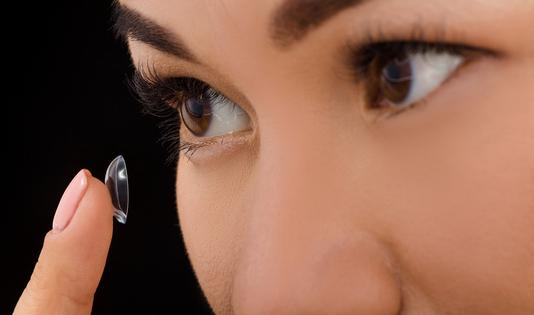Can wearing contacts harm your vision?
Published in Health & Fitness
Since I first started wearing contacts decades ago, they seemed like a minor miracle. Not having to wear glasses made driving, sports and everyday life better.
But then I’d see the occasional report of sight-threatening infections and other problems related to contact lens use. These were alarming, to say the least — almost enough to consider giving up my contacts. Wearing glasses isn’t so bad, right?
What are the risks of wearing contact lenses?
There are many types of contact lenses — hard, soft, daily wear, and extended wear — all of which are considered quite safe. But rarely, serious problems may occur. And since about 45 million people in the U.S. wear contact lenses, a risk affecting even a small percentage of users could translate to many thousands of people affected.
The most common concerns and conditions related to wearing contact lenses include:
Although minor irritation may go away on its own within a day or two, stop wearing your contacts and call an eye doctor if you have severe or persistent symptoms. Usually, this requires evaluation by an ophthalmologist.
Sleeping while wearing contacts may cause serious harm
The cornea is the transparent outer layer of the eye. It protects the eye and helps focus light on the back of the eye, enabling you to see clearly. While contacts rarely harm the cornea, sleeping in contacts not intended for extended wear can make a corneal infection or even an ulcer more likely to happen.
In a 2018 report, doctors described the stories of six people with serious eye infections after wearing their soft contact lenses while sleeping. For example:
Treatment for these problems included prolonged courses of antibiotics. Additionally, two people needed a corneal transplant. Even with these treatments, some people lost vision.
Serious problems like this are rare: estimates suggest keratitis occurs in two to 20 per 10,000 contact lens wearers. However, the US Centers for Disease Control and Prevention estimates there are up to a million visits per year to emergency rooms and other outpatient healthcare providers for problems related to contact lens use.
If you wear contacts, take note
As these cases demonstrate, unless you use extended-wear contacts specifically approved for wearing overnight, you shouldn’t sleep in them. Even then, it’s safest to take them out before bed.
Other recommendations for safe contact use are:
If you notice problems, such as redness or pain in your eye or a change in vision, take your lenses out right away and let your eye doctor know.
If you have serious problems despite taking good care of your lenses, report it to the FDA MedWatch program. By tracking these reports, the FDA can issue alerts if necessary.
The bottom line
Fortunately, serious problems related to contact lens wear are quite rare, probably because the recommended care of lenses reliably prevents them. So, be conscientious about taking care of your contact lenses — this is one situation in which you really shouldn’t cut corners. And if keeping up with the recommended routine is truly too much of a bother, talk to your eye doctor about other options. Maybe you’ll decide that wearing glasses isn’t so bad after all.
(Robert H. Shmerling, M.D., is a senior faculty editor for Harvard Health Publishing.)
©2022 Harvard University. For terms of use, please see https://www.health.harvard.edu/terms-of-use. Distributed by Tribune Content Agency, LLC.










Comments